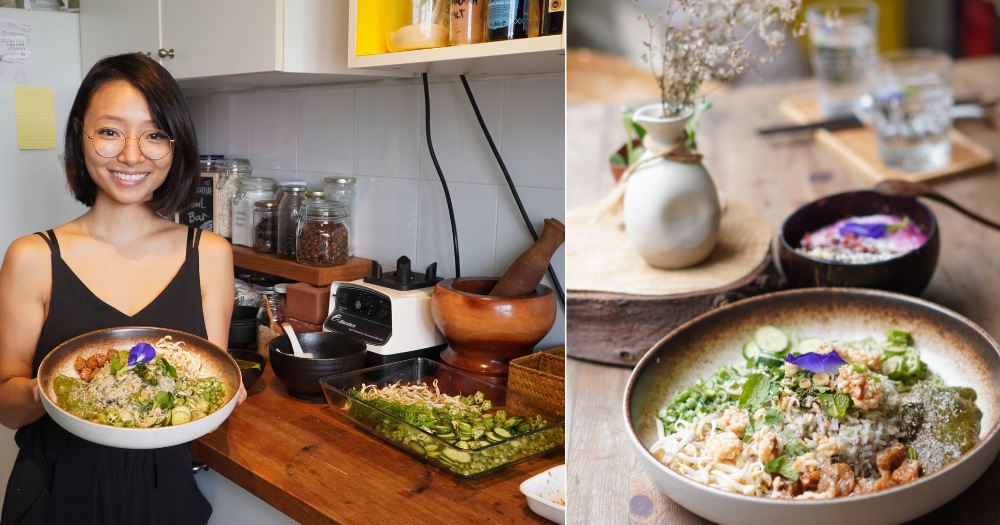Follow us on Telegram for the latest updates: https://t.me/mothershipsg
A young Singaporean, who had her globe trotting cut short by the Covid-19 pandemic, returned home to start an organic farm-to-table vegan home kitchen.
In 2019, Jacinda and her husband, Martin, quit their jobs and set off in a campervan on a journey to travel from Singapore to Europe.
However, after the trip came to an abrupt halt due to the pandemic, the young Singaporean couple returned home to start their home-based business, called "The Breakfast Club", which offers a plant-based meal delivery service.
From campervan travel to starting The Breakfast Club
While traveling, the couple visited many vegan establishments like cafes and restaurants that used wholesome, natural ingredients.
The food they tasted on their travels had no MSG, no refined sugar and no mock meat.
Upon returning to Singapore, they decided to start The Breakfast Club to provide healthy food for busy go-getters.
Apart from providing meal delivery services, the couple also hosts smoothie bowl workshops and intimate private dining experiences in their new apartment.
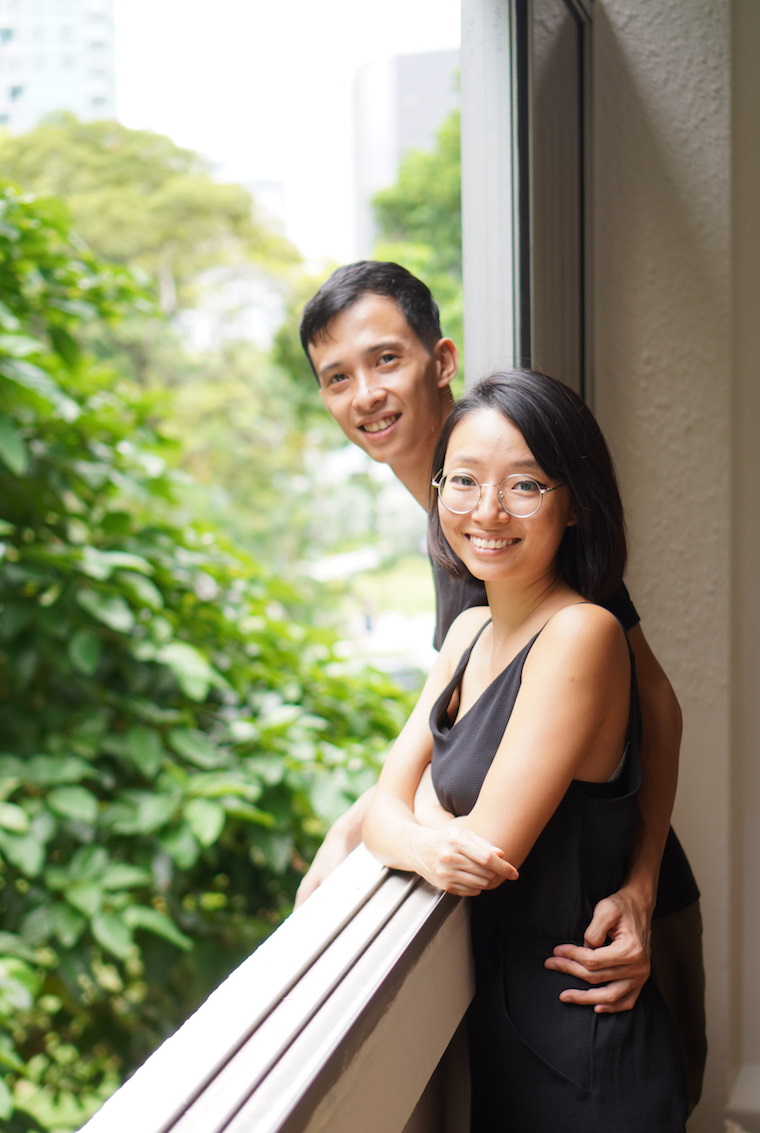 Image via Goh Jun Xuan/@jx_veg_journal
Image via Goh Jun Xuan/@jx_veg_journal
The home-based business is primarily run by Jacinda who told Mothership that the inspiration for the business came after she improved her health by changing the way she eats.
Stumbled across raw vegan diet after health took a downturn
The 32-year-old recounted that she first made the switch to the plant-based diet about four years ago.
Prior to the change, she was on a "hawker centre" diet, which included food, such as fried bee hoon, bak chor mee, white bread, or food from the economy rice stall.
Adding on to that, she also drank alcohol and ate late suppers quite often.
At that point in her life, the former freelance host and actress was experiencing several health issues, such as:
- Acne
- Eczema
- Urinary Tract Infection
- Hives
- Balding spots in her hair
- Fever
- Sore throat
- Flu
She took medication for all the above-mentioned conditions, such as hormonal pills and antibiotics, anti fungal medication but the medications stopped being effective for her and the doctors then told her that they didn't know what to do next, Jacinda told Mothership.
Her conditions, however, visibly improved after she stops eating out and went on a five-day raw vegan diet, which included swapping out the refined sugar, carbohydrates and processed food at home for natural, whole foods.
Here are photos of her showing before and after the change in diet:
 Photos via The Breakfast Club
Photos via The Breakfast Club
Jacinda's friends and family saw that the change in her and got curious about her new diet.
She also started making breakfast for some of her interested colleagues at work which eventually led to the start of The Breakfast Club.
Organic local fare & meal delivery service
At The Breakfast Club, meals are prepared using pesticide-free and organic ingredients from local farms in Singapore, such as Fire Flies Health Farm and Green Circle Eco Farm.
In addition to using local produce, the 32-year-old also uses clay pots to slow-cook the food for their meal delivery service, as she does not believe in using the microwave.
Here's a look at the local produce:
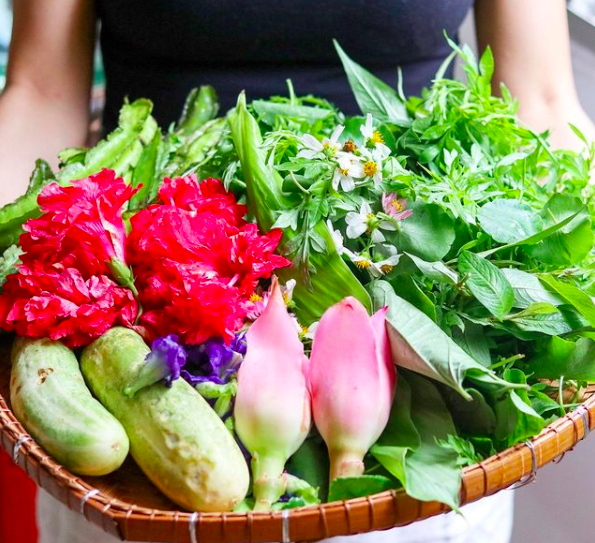 Photo via The Breakfast Club
Photo via The Breakfast Club
Her father, who has an allotment garden plot under the National Parks Board scheme, also often supplies her with vegetables, such as cucumber and spinach (as seen below):
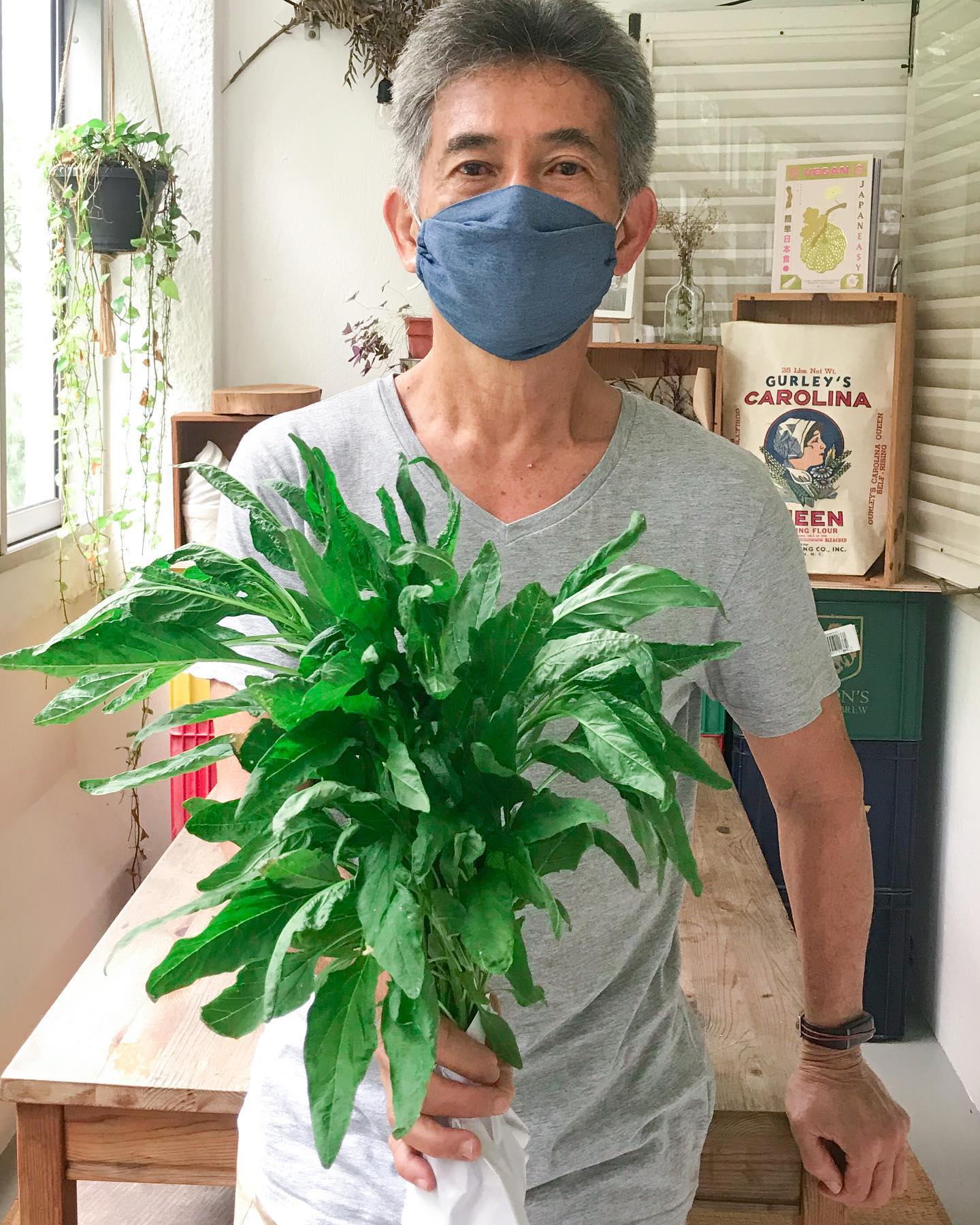 Jacinda's dad with spinach that he grew. Photo via The Breakfast Club
Jacinda's dad with spinach that he grew. Photo via The Breakfast Club
The Breakfast Club offers a wide variety of dishes from various cuisines, drawing inspiration from Chinese, Japanese, and even Mexican food.
Some of the vegan dishes they offer include dumpling noodles:
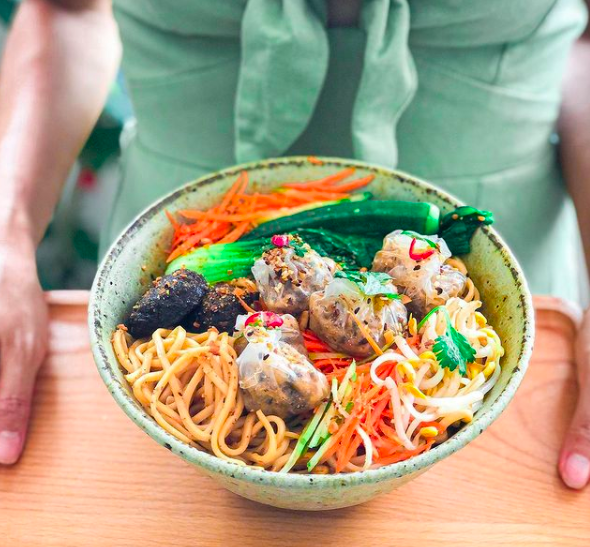 Photo via The Breakfast Club
Photo via The Breakfast Club
Vegan sushi, anyone?
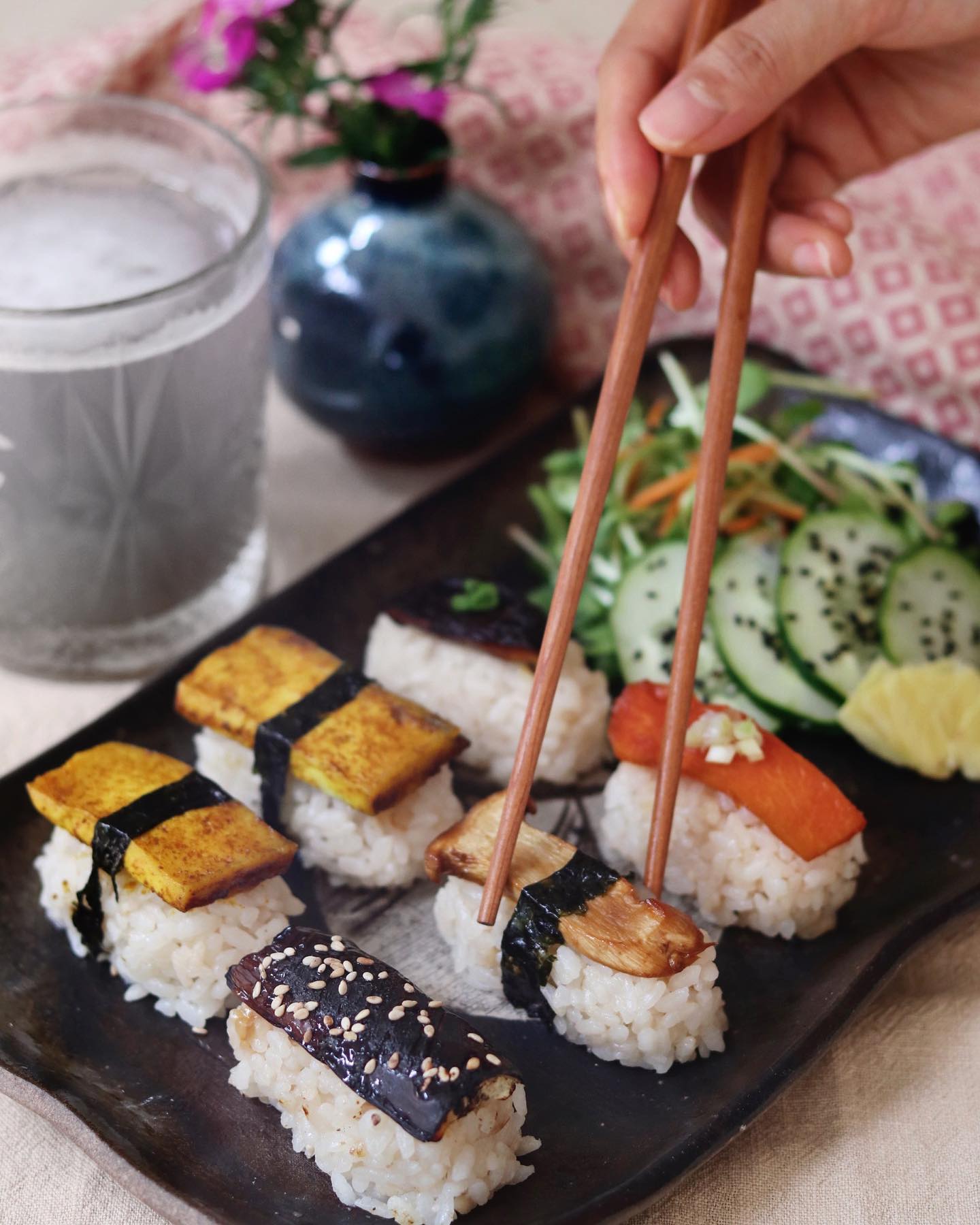 Photo via The Breakfast Club
Photo via The Breakfast Club
They also offer vegan poke bowls for their meal delivery service:
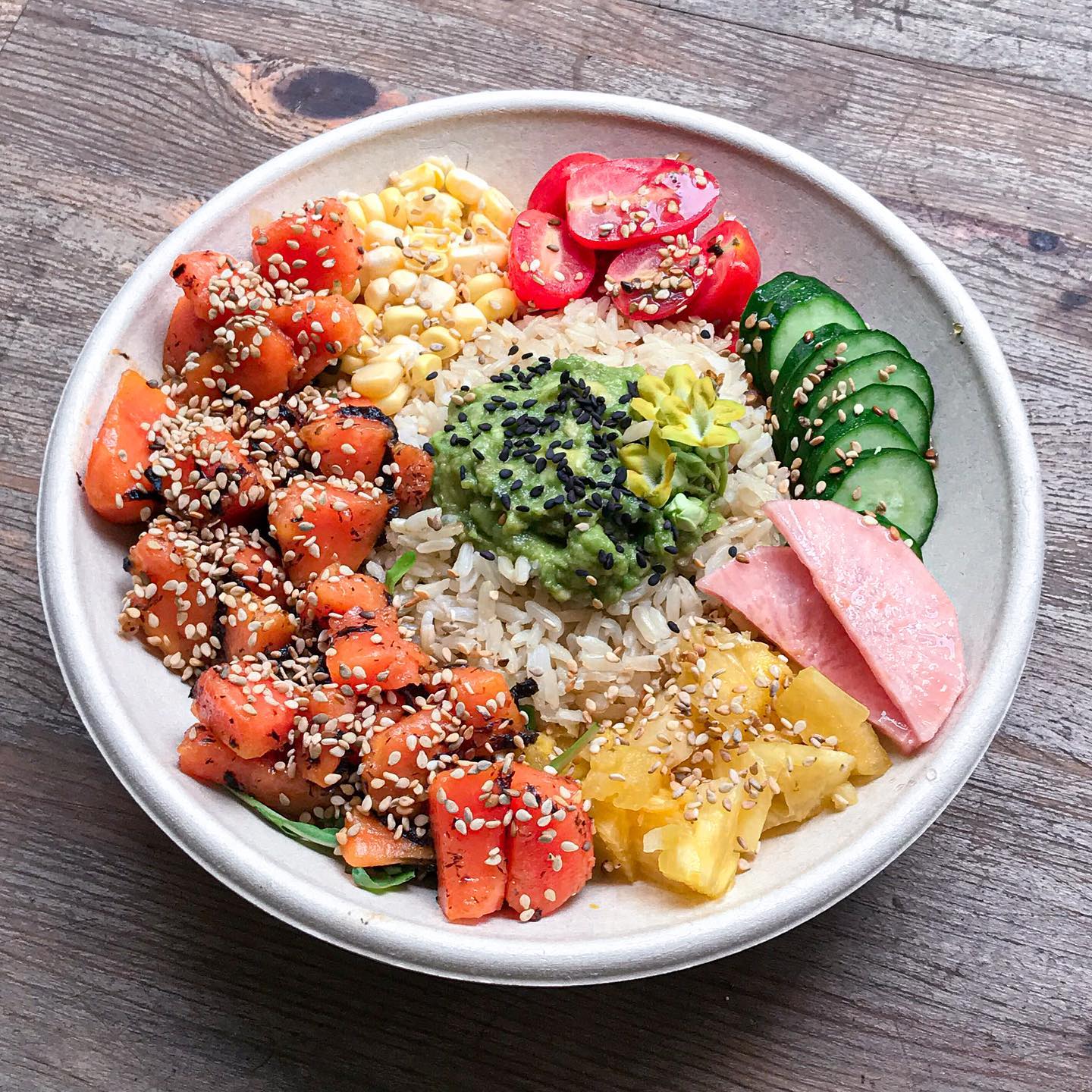 Photo via The Breakfast Club
Photo via The Breakfast Club
And colourful and aesthetically pleasing smoothie bowls, which do not contain refined sugar:
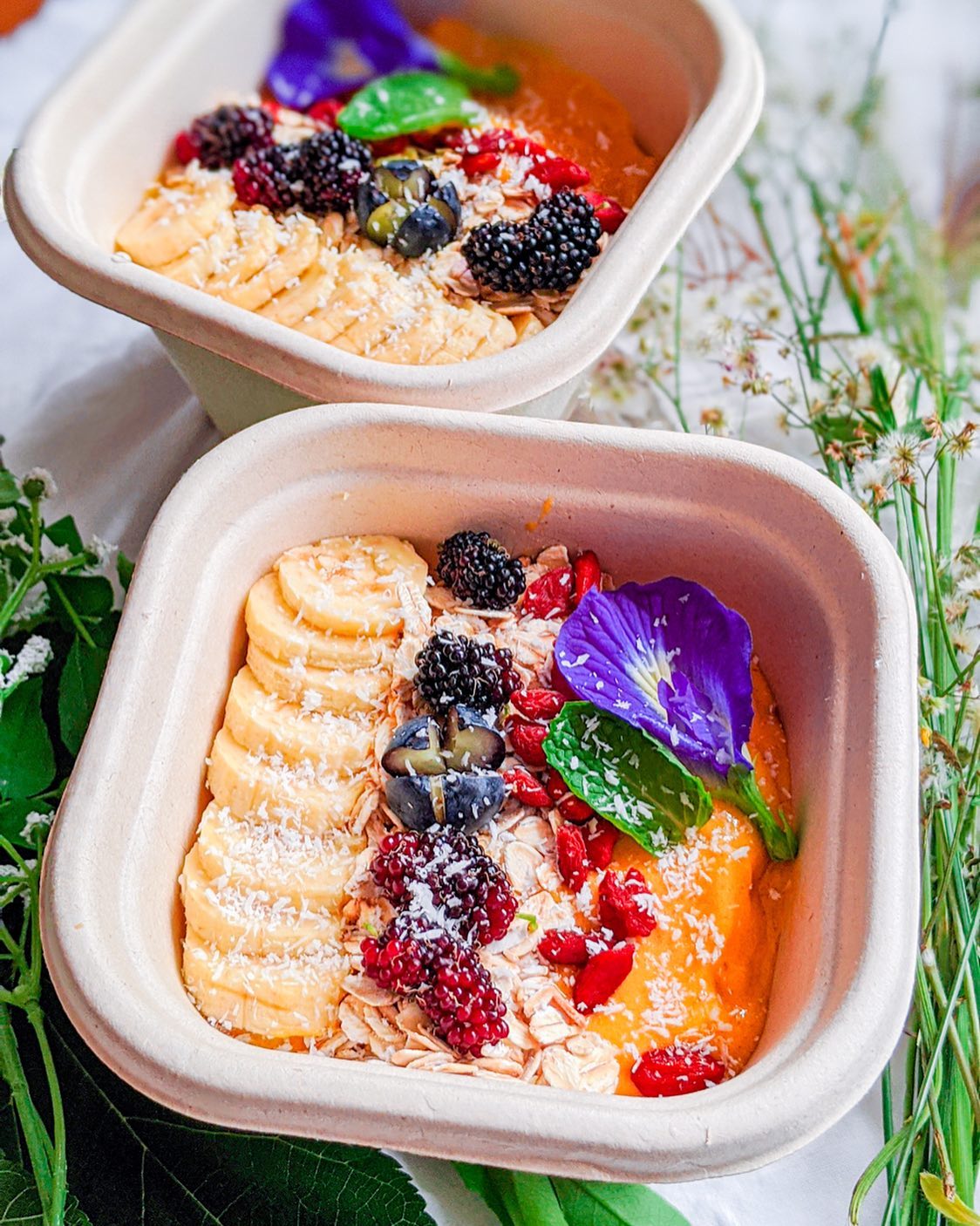 Photo via The Breakfast Club
Photo via The Breakfast Club
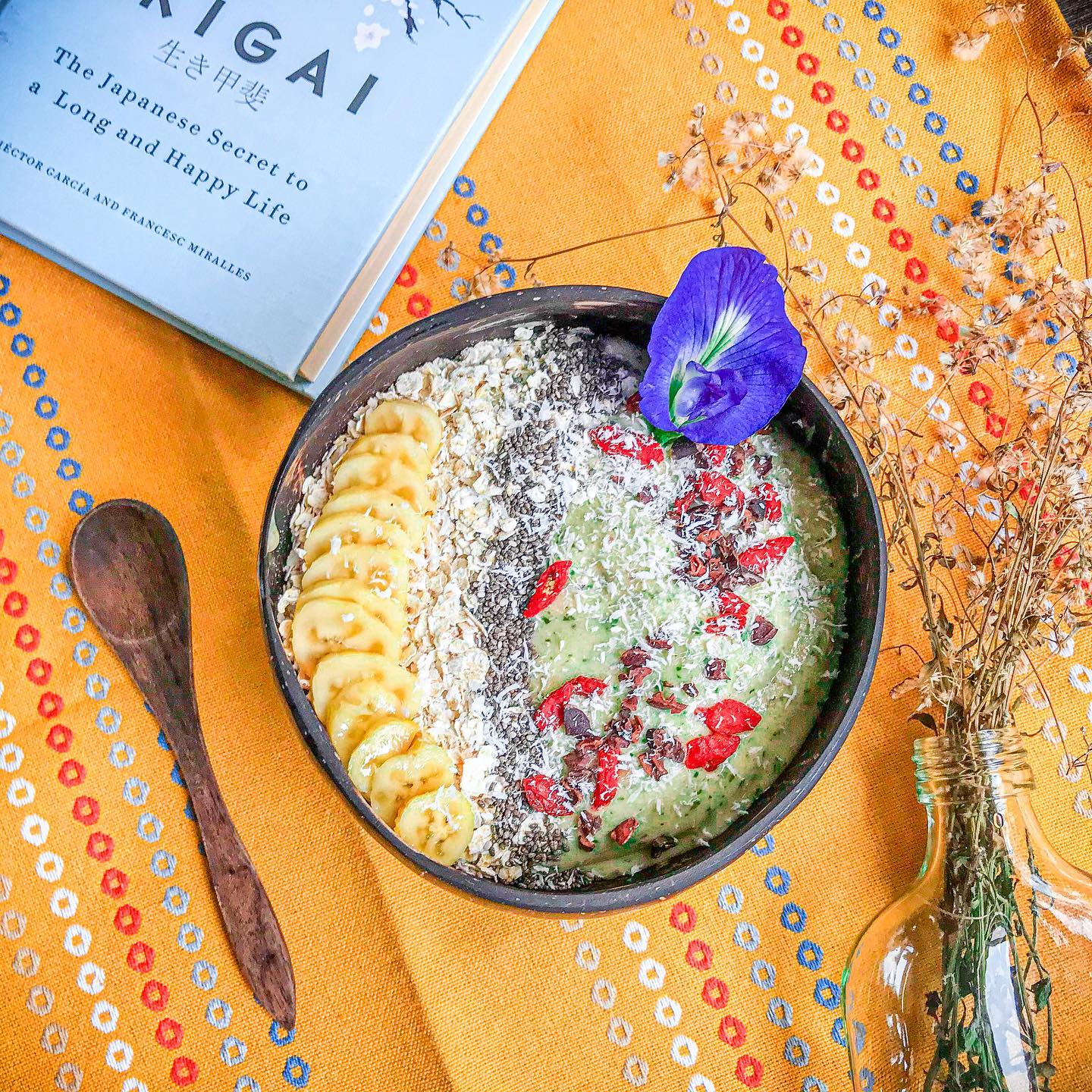 Photo via The Breakfast Club
Photo via The Breakfast Club
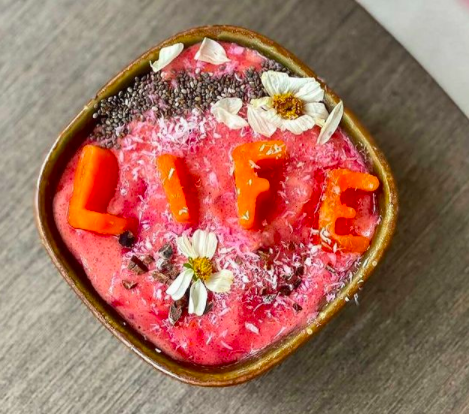 Photo via The Breakfast Club
Photo via The Breakfast Club
Eating healthy on a budget
When asked how one can eat healthy on a budget, Jacinda responded that " it is actually not expensive at all to eat well".
Preparing your own food might cost a bit more than what you can get at hawker centres, but Jacinda believed that it is worth it in the long run.
Here are some tips she shared:
1) Prepare your own meals at home. Eating out should be kept to a minimal of once a week or even once a month to help save money.
2) Eating less, or like people from Okinawa say, 80 per cent full.
3) Use whole foods, like vegetables, fruits, beans and unrefined carbohydrates. Cutting out processed foods helps to save money.
4) If you are buying organic, choose local or regional produce, as imported veggies cost more due to shipping costs.
You can find out more about her story here:
Top images via Goh Jun Xuan/@jx_veg_journal
If you like what you read, follow us on Facebook, Instagram, Twitter and Telegram to get the latest updates.
